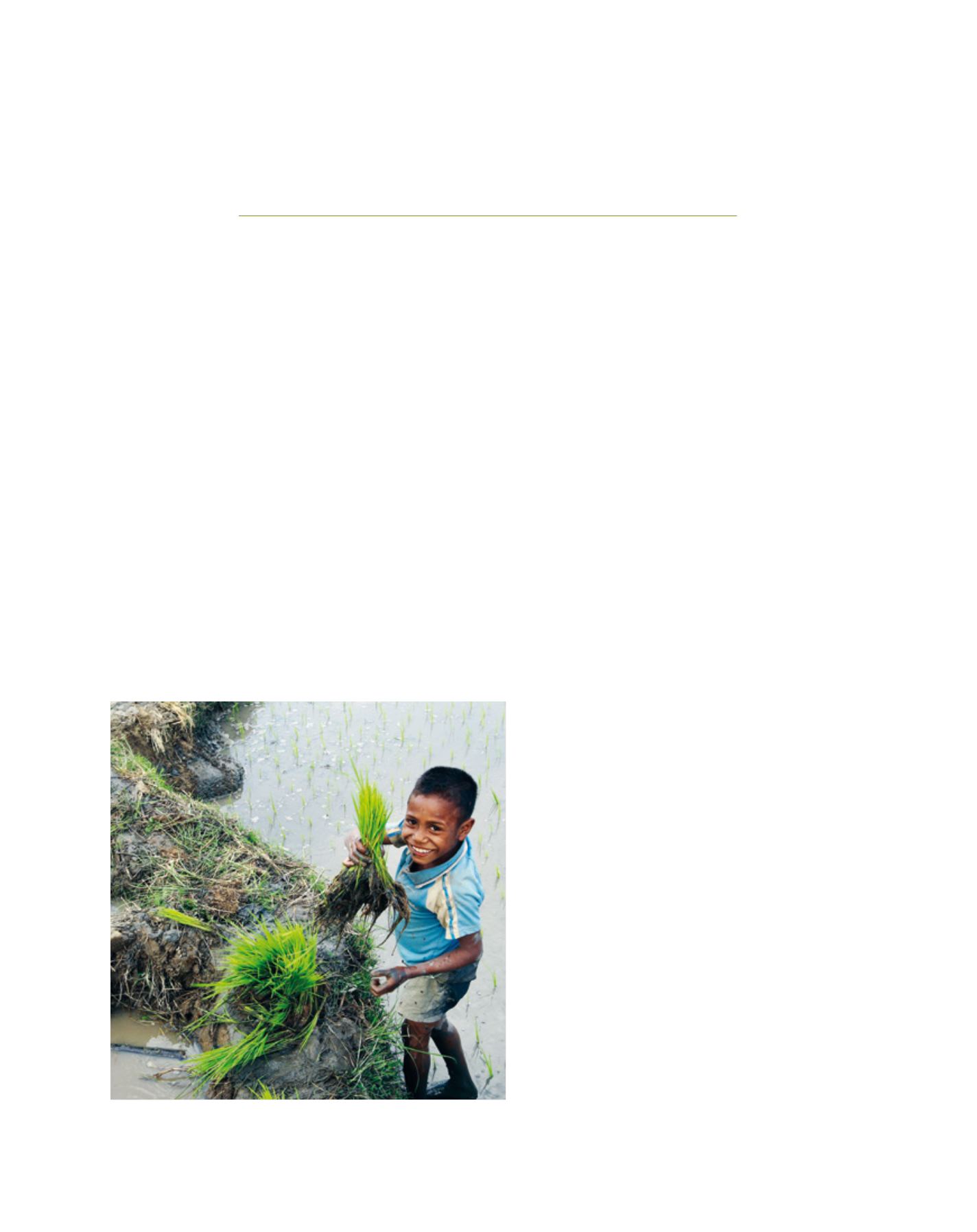

[
] 288
Understanding the Global Water
System for Water Cooperation
Sina Marx and Anik Bhaduri, Global Water System Project, International Project Office, Bonn, Germany
T
he imperative to strive for more cooperation in water
issues lies in the very nature of the resource: water is not
only an irreplaceable and non-substitutable resource, but
it is also vital to all aspects of human development and ecosys-
tems. As a universal solvent, water is the thread that links all
aspects of human and natural systems.
1
Global environmental changes which affect these complex systems
with added uncertainties call for cooperation to find integrated and
coordinated responses. A large number of these global changes are
man-made. The impacts of human action on the natural processes of
our planet are in fact so immense that a number of scholars argue we
have entered a new geological epoch, the Anthropocene. The term
expresses the notion that nowadays humankind can be counted as
a global force in its own right, and therefore must be considered
as a key driver to the future development of all living species –
including ourselves. The paradox of this situation is that we tend to
induce these major global changes without adequate knowledge of
the systems we are manipulating.
Therefore, after a long tradition of focusing on local or
regional processes in water research, there is increasing
recognition of the importance of properly understanding
the dynamics as well as its different elements and compo-
nents. Besides the physical and biogeochemical elements,
humans play a major role impacting the system by with-
drawing water for household consumption, industries,
food and energy as well as adding external matter to the
water, such as fertilizers and pesticides from agriculture
or waste water from cities and industries. Moreover,
we are changing the course and flow of rivers through
infrastructure development. Despite these massive
interventions, we are still lacking sufficient water supply
to satisfy our basic needs and human rights and will
continuously have to struggle in order to achieve this,
given the increasing demands on global water resources
to meet consumptive, industrial and agricultural water
needs. Similarly, feeding the growing population of our
planet and enabling a dignified life for everyone cannot
be accomplished without achieving water security for
both humans and nature through a massive increase in
sustainable cooperation toward this end.
To facilitate the cooperation required for global water
security, we need more knowledge on how to manage
the global water system: “A prerequisite for selecting the
right way to intervene is to know enough to act wisely”.
2
The Global Water System Project (GWSP) was
established in 2004 as a long-term research project
to understand the role of human induced changes to
the water cycle that had become global in magnitude.
Through multi- and interdisciplinary cooperation
between researchers, the aim of GWSP was to promote
the understanding of the manifold connections, both
within the global water cycle and with other socioeco-
logical systems. Such knowledge is required to enable
societies to properly respond to these changes in working
towards water security. An understanding of the water
system is also pertinent in terms of water cooperation,
since the global connections between different sectors,
scales and actors and the challenges arising from global
change call for new forms of cooperative arrangements.
After nearly a decade of global water research within
GWSP, it has become apparent that such new forms
of cooperation need to include improved monitoring
of resources, cooperation between sciences and disci-
plines towards global assessments of the state of natural
I
nternational
C
ooperation
on
W
ater
S
ciences
and
R
esearch
Global changes call for new and integrated forms of cooperation – such as the joint
management of land and water resources for future generations
Image: UN Photo/Martine Perret


















